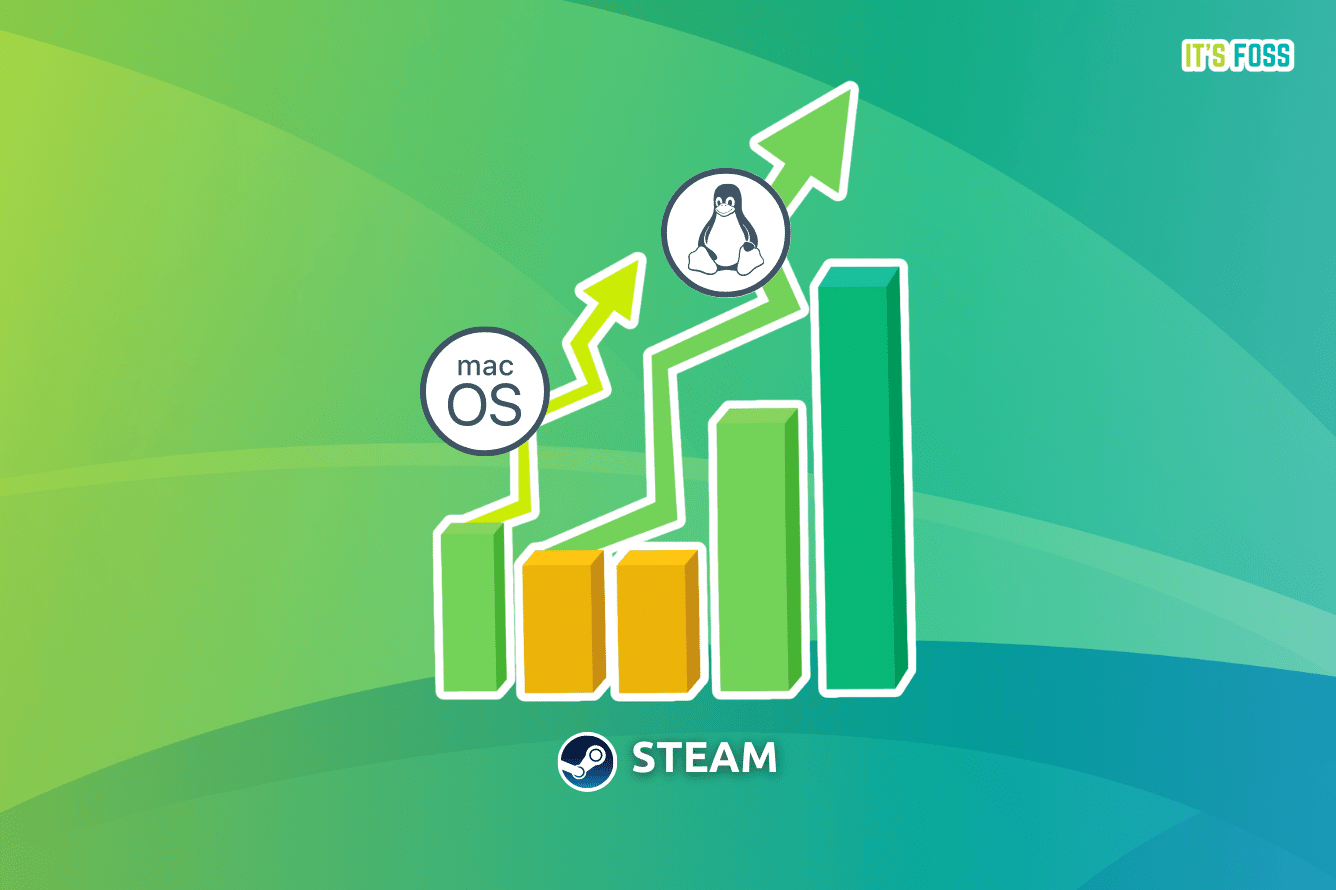
With Linux and open-source, every year brings some good surprises, and shockers.
There could be a Linux distribution that changes its base, an independent project taken over by a big tech giant, and various other things. And, throughout 2023, we tried our best to get you a dose of the rollercoaster ride.
Now that the year has come to an end. It is time to look back at some of the biggest stories that happened in 2023.
1. Ubuntu Debuts the "Flutter" Store ⭐

Ubuntu's software center is always the talk of the hour for its changes, and improvements.
This year around, Ubuntu stepped up their game by introducing a new "Ubuntu Store" with Ubuntu 23.10 based on Flutter, providing a modern and sleek user experience.
It will eventually replace the software center Ubuntu's had for years now, which is a good thing in my opinion.
2. Indian Defense Services Switch to Linux

The Defense Ministry of India has decided to replace Windows with an in-house developed Linux distro dubbed "Maya".
Of course, this is not the first time a government body has decided to use Linux to improve security and privacy.
However, in a country like India, a simple choice to use Linux in one part of the government body could have a massive influence over other systems. And, that would be a really nice thing for Linux in general.
3. Red Hat's Source Code Locking 🔒
Red Hat, the biggest open-source company, decided to lock the source code for Red Hat Enterprise Linux behind a paywall.
While they still allowed individual developers to access the source code with a free subscription, but it is no longer publicly accessible to all, as it was earlier.
This change sent waves to all the RHEL-based distributions, and forks:

From competitors like SUSE, Oracle, and others teaming up to work on an RHEL-fork, to various other changes to projects like Rocky Linux, and AlmaLinux.
For me, it was the biggest story of 2023, which will continue to have after-effects in 2024.

4. A Change to Linux Kernel LTS Support Cycle

To reduce the burden of Linux maintainers, the support cycle for an LTS kernel was dropped down to two years instead of six.
It was evaluated that not many people use the older Linux Kernel versions, and with many LTS versions of the kernel being maintained for years, it becomes a difficult and tiresome task for the maintainers.
As a user, you should not have to worry about it, unless you rely on specific hardware support that no longer exists on newer Linux kernels.
5. Ubuntu Drops Flatpak Support for all its Flavours 🔨
It is no surprise that Canonical's Ubuntu favors Snap packages over anything else.
However, Ubuntu flavours did have the freedom to offer Flatpak support, like Ubuntu MATE.
Unfortunately, Ubuntu axed the default Flatpak support for the flavors, citing a consistent user experience as the reason.

Of course, you can add Flatpak support manually, but it's not an out-of-the-box convenience anymore.
Would this change affect you? Well, if you know your pick between Flatpak vs Snap, you already know the answer.
6. A Rolling-Release Ubuntu Distro Appears 🎲
Among all the other interesting disto releases, Rhino Linux hit the stable release. It aims to offer a rolling-release experience on top of Ubuntu.
You can explore more about the release in our coverage:

7. Vim Creator Passed Away🥺

This year, we lost a notable creator in the Linux space, Bram Moolenaar, the legend behind Vim text editor.
He aimed to improve upon the existing vi text editor, initially created for Unix.
Bram then built upon the source code of vi and its clones, improving them by adding new features, and finally releasing the first version as “Vi IMitation”, where it got the “Vim” acronym.
8. Linux Rising Above macOS Gaming Stats
As Linux users, we take our statistics seriously and celebrate when there's a milestone. Like, monitoring the Linux desktop market share every month.
This year, Linux usage stats stood higher than macOS in Steam's stat report. You can get the details here:

Wrapping Up
Plenty of things happened in 2023 😲
For instance, there were various exciting applications that we uncovered:

Not to forget, some new names in the distro space made it to the spotlight:

💬 For you, what was the biggest shocker (happy/sad) in 2023? Let us know in the comments below.
- Even the biggest players in the Linux world don't care about desktop Linux users. We do.
- We don't put informational content behind paywall. Your support keeps it open for everyone. Think of it like 'pay it forward'.
- Don't like ads? With the Plus membership, you get an ad-free reading experience.
- When millions of AI-generated content is being published daily, you read and learn from real human Linux users.
- It costs just $2 a month, less than the cost of your favorite burger.
Become a Plus Member today and join over 300 people in supporting our work.










